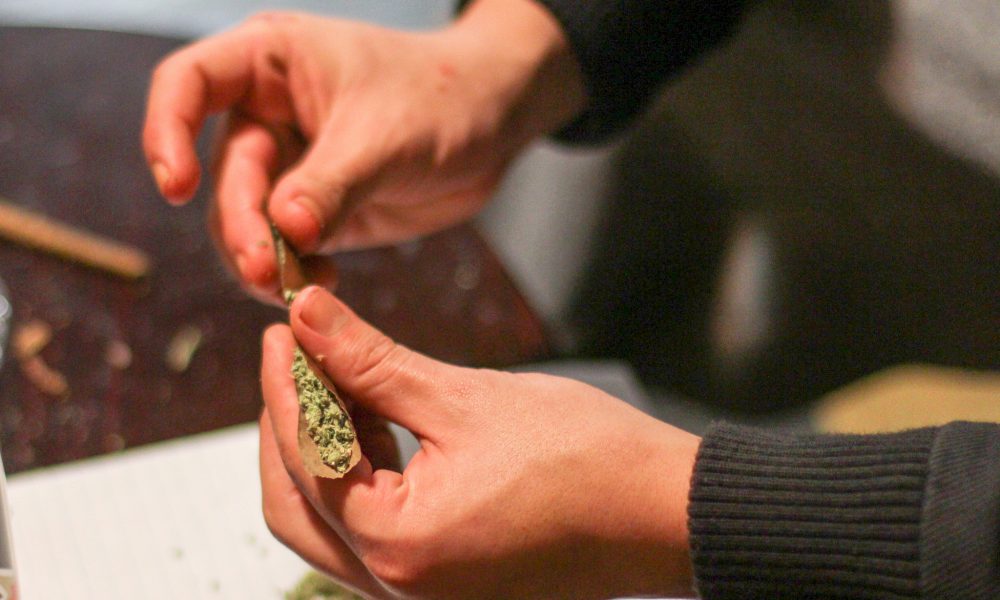The Ultimate Fighting Championship (UFC) might have removed marijuana from its banned substances list for professional fighters—but a California athletics commission says they could still face penalties under state rules for testing positive for THC over a certain limit ahead of an upcoming event.
UFC, which formally amended its cannabis drug testing policy last month, reportedly advised fighters that they could be subject to a $100 fine by the California State Athletic Commission if they test over 150 nanograms of THC per milliliter ahead of the UFC 298 event that is set to take place on February 17 in Anaheim.
An email from UFC that was obtained by the trade publication MMA Fighting cautioned fighters to “discontinue use immediately to ensure you don’t exceed” the THC threshold.
The policy from the California commission, which falls under the state Department of Consumer Affairs (DCA), might seem misplaced in light of UFC’s own recent reform, as well as the fact that marijuana is legal for adults in California.
Marijuana Moment reached out to DCA for comment, but a representative was not immediately available.
UFC itself said last month that while it models its list of prohibited drugs after the World Anti-Doping Agency (WADA)—which has controversially maintained cannabis as a banned substance—it decided to make amendments “based on historical findings (i.e. marijuana removed from the prohibited list).”
Professional fighters were already largely protected from being penalized over testing positive for THC under a policy change that UFC adopted in 2021, but it has since removed cannabis as a banned drug altogether. The reform took effect on December 31, 2023.
Multiple sports organizations have moved to amend their marijuana testing policies for athletes amid the state legalization movement.
For example, a recent collegiate athletics proposal would remove marijuana from the list of substances included in drug screenings for National Collegiate Athletic Association (NCAA) championship competitions, with officials set to vote on the matter in June.
Last summer, the National Basketball Association (NBA) and its players union signed a collective bargaining agreement that removes marijuana from the league’s banned substances list and lays out rules allowing players to invest in and promote cannabis brands—with certain exceptions.
Nevada sports regulators voted last year to send a proposed regulatory amendment to the governor that would protect athletes from being penalized over using or possessing marijuana in compliance with state law.
The National Football League’s (NFL) drug testing policy changed demonstrably in 2020 as part of a collective bargaining agreement.
NFL is also partnering with Canadian researchers on a clinical trial to test the safety and efficacy of CBD for pain management and neuroprotection from concussions—key issues for many football players who experience injuries as part of the game.
The New York Media Softball League (NYMSL)—which has teams representing The Wall Street Journal, High Times and BuzzFeed among its ranks—announced last July that it was launching a sponsorship deal with a Kentucky-based CBD company.
The idea behind the collaboration was inspired by moves by Major League Baseball (MLB) and certain teams like the Kansas City Royals and Chicago Cubs that have also recently partnered with CBD businesses.
MLB itself announced its league-wide partnership with a popular CBD brand in 2022. Charlotte’s Web Holdings, one of the most recognizable hemp-derived CBD companies in the country, signed the deal with league to become the “Official CBD of MLB.”
While advocates have welcomed these changes, there’s been criticism of the World Anti-Doping Agency over its ongoing cannabis ban. Members of a panel within the agency said in an opinion piece last August that marijuana use by athletes violates the “spirit of sport,” making them unfit role models whose potential impairment could put others at risk.
Advocates strongly urged WADA to enact a reform after U.S. runner Sha’Carri Richardson was suspended from participating in Olympics events due to a positive THC test in 2021.
Following that suspension, the U.S. Anti-Doping Agency (USADA) said that the international rules on marijuana “must change,” the White House and President Joe Biden himself signaled that it was time for new policies and congressional lawmakers amplified that message.
New Kentucky Marijuana Bill—HB 420—Would Legalize It For Adults, But Faces Uphill Battle In GOP-Controlled Legislature
Photo courtesy of Martin Alonso.
Read the full article here

